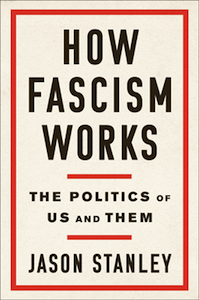Politics
Duncan's Law
Trump lawyer and all-around whackadoodle Rudy Guiliani claims he’s the most ethical person ever. Of course, his association with one of the least ethical people ever suggests otherwise. Thus, it prompts me to articulate “Duncan’s Law.” Succinctly stated, if someone claims absolute superiority in some particular characteristic, his actual performance in that characteristic is actually somewhere between average and the least performant.
Friday, November 9, 2018
Tuesday, November 6, 2018. U.S. Election Day
Yes. Yes, they’ve done a fine job for “you”. But what about the rest of us? Moreover, what about the “us” in perpetuity, those who will have to deal with the erosion of civic norms?
I’m an atheist, but I’m familiar enough with the Christian canon that this photograph of “President” Trump with “journalist” Sean Hannity reminded me of a verse from the Gospel of Matthew (Chapter 16, verse 26):
Saturday, October 13, 2018
Sunday, October 7, 2018
- Republicans reprising their classic role of sore winners.
Friday, October 5, 2018
Thursday, October 4, 2018
Monday, September 17, 2018
How fascism works
A recent piece in The Atlantic by Peter Beinart filled in a cognitive gap in understanding how a large minority of U.S. citizens continue to support an abjectly incompetent, almost certainly criminal, willfully ignorant, and generally hateful man as president. The article Why Trump supporters believe he is not corrupt makes the argument that when Trump defenders concern themselves with the idea of corruption they are not thinking of political corruption so much as corruption of the purity. This is consistent with Jonathan Haight’s research into the determinants of a person’s moral judgments as a function of political affiliation.^[This has been noted before by Thomas Edsall back in early 2016 writing for The New York Times.] Conservatives are likelier than liberals to concern themselves with tradition and purity. When Donald Trump uses the word disgusting which he has done scores of times on Twitter, he’s invoking the conservative fear of taint. The Special Prosecutor’s inquiry into possible collusion and other crimes committed during the 2016 elections, in Trump’s view, are not only unlawful, biased, or unfavourable in some other objective way. It is, to Trump, disgusting (“this Rigged and Disgusting Witch Hunt.”)




